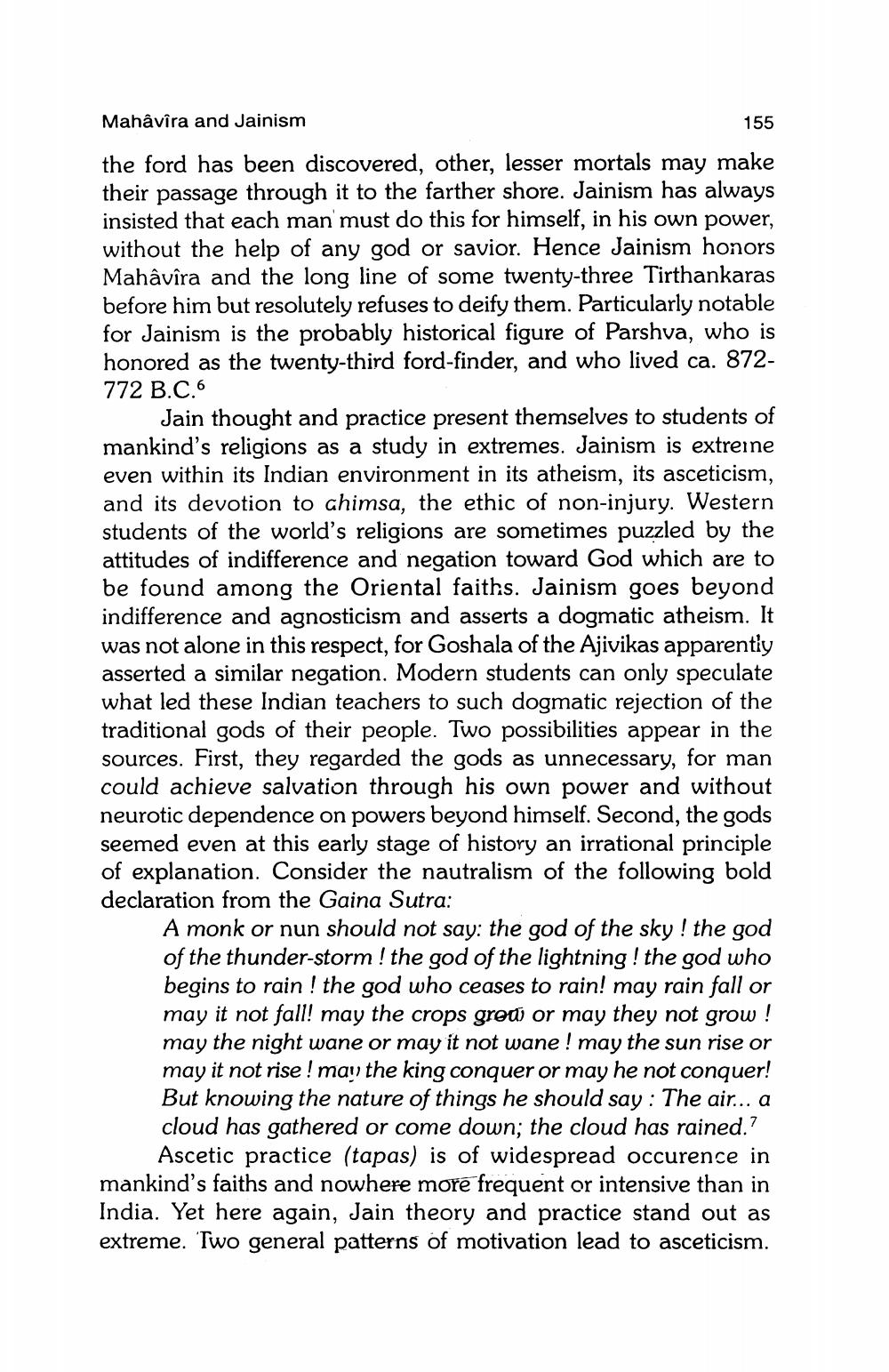________________
Mahâvîra and Jainism
155
the ford has been discovered, other, lesser mortals may make their passage through it to the farther shore. Jainism has always insisted that each man must do this for himself, in his own power, without the help of any god or savior. Hence Jainism honors Mahâvîra and the long line of some twenty-three Tirthankaras before him but resolutely refuses to deify them. Particularly notable for Jainism is the probably historical figure of Parshva, who is honored as the twenty-third ford-finder, and who lived ca. 872772 B.C.6
Jain thought and practice present themselves to students of mankind's religions as a study in extremes. Jainism is extreine even within its Indian environment in its atheism, its asceticism, and its devotion to ahimsa, the ethic of non-injury. Western students of the world's religions are sometimes puzzled by the attitudes of indifference and negation toward God which are to be found among the Oriental faiths. Jainism goes beyond indifference and agnosticism and asserts a dogmatic atheism. It was not alone in this respect, for Goshala of the Ajivikas apparently asserted a similar negation. Modern students can only speculate what led these Indian teachers to such dogmatic rejection of the traditional gods of their people. Two possibilities appear in the sources. First, they regarded the gods as unnecessary, for man could achieve salvation through his own power and without neurotic dependence on powers beyond himself. Second, the gods seemed even at this early stage of history an irrational principle of explanation. Consider the nautralism of the following bold declaration from the Gaina Sutra:
A monk or nun should not say: the god of the sky! the god of the thunder-storm! the god of the lightning! the god who begins to rain! the god who ceases to rain! may rain fall or may it not fall! may the crops grow or may they not grow! may the night wane or may it not wane! may the sun rise or may it not rise! may the king conquer or may he not conquer! But knowing the nature of things he should say: The air... a cloud has gathered or come down; the cloud has rained.? Ascetic practice (tapas) is of widespread occurence in mankind's faiths and nowhere more frequent or intensive than in India. Yet here again, Jain theory and practice stand out as extreme. Two general patterns of motivation lead to asceticism.




